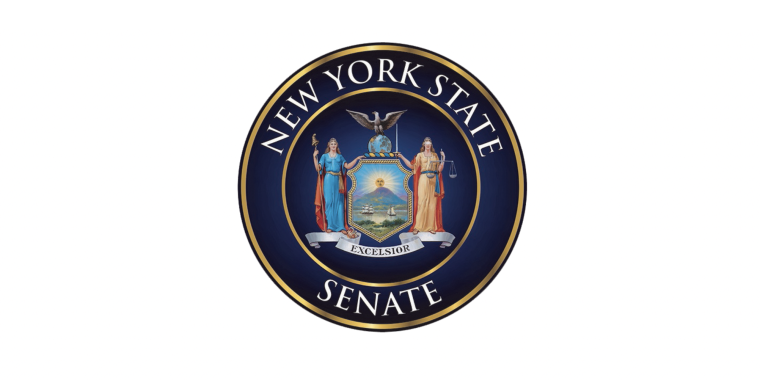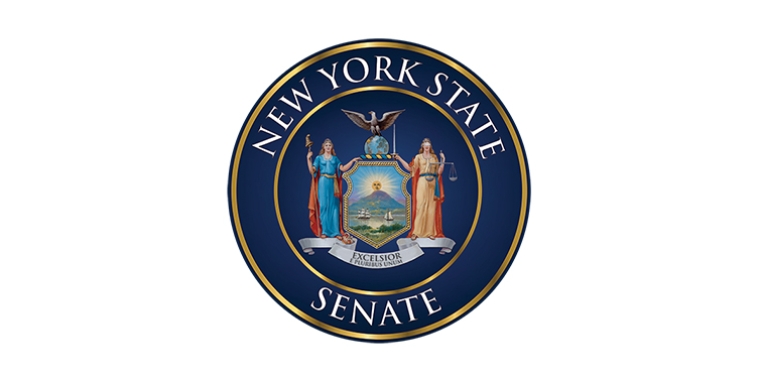
Testimony Before the Public Forum on Limiting Individuals to Mail-Order Pharmacy Benefit Managers Sponsored by New York State Senator Jeffrey D. Klein on May 18, 2006
Liz Krueger
July 15, 2010
I am Liz Krueger and I am the State Senator for New York's 26th Senatorial District that primarily comprises parts of Manhattan's Midtown and East Side. I would like to thank my colleague, State Senator Jeffrey Klein for the opportunity to submit testimony on the practice of limiting individuals with pharmacy coverage to a mail-order-only alternative for securing maintenance medications.
Pharmacy Benefits Managers (PBMs) are a relatively new player in the increasingly complex world of health care. As prescription medications become an ever more costly component of health care, health insurance plans, employers and unions have embraced formularies and new procurement methods for prescription drugs for enrollees.
PBMs have been touted as the cost-saving middle-man between insurance providers and the enrollee for prescription drugs. The promises of savings were based on the PBM having bulk purchasing advantages and the acceptance by insurers of savings if limits were placed on enrollees choices of drugs.
It was assumed that through the combined use of formularies, financial incentives for using generic drugs and the economic disincentives to use non-preferred brand name medications there would be savings for all. It was also hoped that the increase in competition between PBMs to contract with health care insurers would result in lower prescription drugs costs. The theory was that savings would benefit the PBM, the insurer and ultimately the enrollee.
Unfortunately, this optimistic vision has not turned out to match the current reality. What has become apparent is that PBMs have interlocking financial agreements with pharmaceutical companies that encourage inflated pricing and monetary "give backs" to the PBMs. From the beginning there have been concerns that the operating agenda used by PBMs are anything but transparent, and it has now become clear that many decisions that are made in the drug selection process relate to the potential for profits for the PBMs -- rather than the drug's efficacy or actual cost to consumers. Financial arrangements between PBMs and mail order prescription drug companies strongly suggest that a conflict of interest exist for PBMs; the motivation to satisfy corporate interests rather than consumer needs is a deeply troubling concern.
According to research done by the Consumers Union; in the United States, PBMs handle prescription drug benefits for between 160 and 200 million individuals. In July of 2004, the Federal Trade Commission estimated that 95% of patients with prescription drug insurance received their benefits through a PBM. An estimated 10% of the $161 billion spent in the United States on prescription drugs in 2002 was spent on side deals and payments to PBMs. In another FTC study released in August of 2005 the FTC acknowledged that fewer generics are dispensed through mail-order than retail providers. Consistent with prior studies, in assessing differences in Generic Dispensing Rates (GDRs) it was found that GDRs were dispensed nationwide at a 5% lower rate by mail-order pharmacies than local pharmacies. The difference, when you consider the vastness of the United States market, has the potential to cost consumers more than $7.5 billion. Higher cost drugs provide the PBM with greater profit and suggest that PBMs are not acting in the best interests of their clients and individual enrollees.
New York State Attorney General Eliot Spitzer and State Civil Service Commissioner Daniel E. Wall announced on August 4, 2004 a lawsuit against Express Scripts, Inc. (provides PBM services) for conducting elaborate schemes that inflated by millions of dollars the cost of prescription drugs to the Empire Plan, New York State's largest employee health plan. The lawsuit is a result of a one-year investigation by the Attorney General's office in cooperation with the Department of Civil Service and the Office of the State Comptroller (OSC) and is the result of audits of Express Scripts conducted by OSC in 2002. The lawsuit alleges that Express Scripts inflated the costs of generic drugs and lined its own pockets with millions of dollars in manufacturers rebates that should have gone to the Empire Plan. Additionally, Express Scripts is charged with fraud and deception in inducing physicians to switch a patient's prescription in order that Express Scripts receive money from the second drug's manufacturer. It was further asserted that Express Scripts would switch members from a brand drug losing patent protection to another made by the same manufacturer that was not facing generic competition. These prescription changes resulted in higher drugs costs for plans and members and increased the bottom line for Express Scripts. We cannot overlook the possibility that individuals have also experienced adverse effects from changes in established medical protocols.
As we look at a new trend in covered pharmacy benefits, i.e., limiting an individual with drug coverage to a mail-order-only-system for securing maintenance medication I am extremely alarmed. We know that PBMs have ownership in the larger mail-order prescription drug companies. With the PBMs history of self-serving, behind the scene deal making, I am skeptical that consumers will be the financial beneficiary of such practice. Every PBM in the country is facing litigation in multiple forums by State Attorney Generals, unions and consumer groups. Why would we want to put the fox in-charge of the hen house?
Being that mail-order pharmacy companies often have interconnecting fiscal relationships with PMBs, a mail-order-only method for procuring maintenance medication is to be avoided. There are additional reasons for not favoring the exclusive by mail formula. I support the capability of a person to make choices that fit their needs and that are still fiscally sound. I want to ensure that New Yorkers have the choice to mail-order OR go to their local pharmacy. There are times when a face-to-face exchange works best. Relationships between doctors, local pharmacies and patients allow for the enrollee to receive information about side-effects and dosage as well as the chance for the pharmacist to recognize possible contraindicated drug interactions and allergies. It has also been noted by the Pharmacists Society of the State of New York that shipping exposes medication to extremes in temperature and humidity and they raise concerns about the high levels of radiation currently being utilized by mail services as a protection against anthrax and other biological threats.
What we need is clear consumer protection and fair pricing for New Yorkers. The Medicare Part D Prescription Drug Benefit exemplifies the dangers that are present when we entrust our health care to a market place that is driven purely by the need to satisfy corporate shareholders. We need choice, accountability, control and oversight. I have introduced legislation in the Senate (S.2249) that would alert consumers to the existence of a PBM and of any conflicts of interest that exist between the owner of the PBM and the drugs offered in the formulary. My legislation would force disclosure of whether the PBM is controlled in whole or in part by a company that manufacturers, distributes or sells retail or wholesale prescription drugs. It would also allow enrollees and prospective enrollees the ability to review formularies and thus learn about the inclusion of preferred and brand name medications. Consumers will be able to trace through the listing of drugs in the formulary the relationships that might exist that have a benefit for the PMB. Such transparency will create an environment that makes it more uncomfortable for the PMB to continue their self serving practices. We must make the work that PBMs do more transparent and serve the best interests of the consumer.
Senator Klein, thank you for the opportunity to submit testimony. I look forward to continuing to work with you and our colleagues in Albany to see that beneficiaries in pharmacy plans have the choice in securing their prescription medications.

